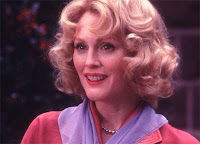Werth: Happy New Year, Wise!
Wise: Happy New Year, Werth!
Werth: Any fun plans for New Year’s Eve?
Wise: I’m coming to your house to watch your favorite New Year’s movie.
Werth: I know! I just love hearing you say it.
Wise: Between the curry-rubbed baked brie and the copious amounts of mid-level champagne, what will we be watching?
Werth: Well, Wise, you are really in for a treat, because my favorite New Year’s Eve movie is 1972’s The Poseidon Adventure.
Wise: You mean the re-make?
Werth: Bite your tongue! I pretend that disaster of a disaster movie never happened. In this case (as with most) the original really is the best. Irwin Allen produced this all-star adventure flick about the S.S. Poseidon and her passengers and crew as they ring in the New Year at sea. No sooner do they finish Auld Lang Syne than a tidal wave hits the ship and capsizes it, literally turning everyone’s world upside down.
Wise: Sounds like a dud way to start 1973.
Werth: Indeed. But as the Academy Award®-winning theme song says, “There’s got to be a morning after.” The rest of the film follows a small group of survivors as they struggle to climb to the bottom (now the top) of the ship to escape certain death by drowning and or/fiery explosions. Based on the exciting Paul Gallico book of the same name, Allen really makes some fun design and special-effects choices. When young Robin Shelby (played with borderline annoying juvenile pluck by Eric Shea) goes to the men’s room and stares hopelessly at the ceiling where the toilets hang with their lids open, we get a real sense of the pickle these people are in.
Wise: Please don’t ever use the words “pickle” and “men’s room” in the same sentence again.
Werth: I promise. Topping the effects is the stellar cast assembled to play this intrepid group: Gene Hackman, Ernest Borgnine, Stella Stevens, Roddy McDowell, Red Buttons, Jack Albertson, Arthur O’Connell, Leslie Nielsen and the one and only Shelley Winters.
Wise: Please tell me Shelley lives.
Werth: No spoilers! But her performance as Belle Rosen, legendary in camp circles, earned her a well-deserved Best-Suporting Actress nomination. All in all it’s a fun flick that actually makes you care about the characters so that you are invested in whether they survive the ordeal... or not. It became the first hit of Irwin Allen’s disaster dynasty that would go on to include The Towering Inferno, The Swarm and the inevitable Poseidon Adventure sequel.
Wise: Sounds like the perfect way to start 2011.
Werth: I mean, as long as you’re not trapped in a capsized luxury liner, you’re doing better than these folks, right? So if after the stroke of midnight we’re still sober enough, what would be your pick for a follow-up New Year’s flick?
Wise: Well, I thought it might be a good idea to follow the deadly histrionics of The Poseidon Adventures with something a little quieter that focuses on domestic conflicts. I’m thinking of Todd Haynes’ Far From Heaven.
Werth: I love that movie. Tell the New Year’s connection!
Wise: A small but pivotal scene takes place on New Year’s Eve, but the majority of the film feels autumnal. Julianne Moore plays the apotheosis of the 50s housewife struggling with the dawning knowledge that her seemingly ideal, ad executive husband, played by Dennis Quaid, is actually gay.
Werth: That makes him more ideal in my book.
Wise: Not for her unfortunately. The revelation destroys her marriage, plus the friendship she strikes up with her gardener, played by Dennis Haysbert, causes all kinds of gossip and backbiting among her proper Connecticut neighbors who rigidly, but politely, adhere to divisions made along racial lines. It’s really the story of one woman’s discovery of the hollowness of her achievements and her subsequent determination to make a more honest life for herself.
Werth: It’s so dramatic!
Wise: Melodramatic, actually. Todd Haynes made the film as a tribute to the Douglass Sirk “women’s pictures” of the 1950s, and he uses the lurid color palette, the heightened emotionalism, and the undercurrent of social critique characteristic to those movies. The cinematography is lush, gently floating though sets filled with crimsons, ochres, lavenders, jades and chartreuse. Sandy Powell’s costumes are glamorous and chic, but somehow real. And the score by Elmer Bernstein is perfectly calibrated, romantic when it needs to be, anguished and occasionally brittle.
Werth: Elmer is my favorite of the Bernsteins.
Wise: Of course, the performances are fantastic too. I don’t think I can say enough about Julianne Moore and Dennis Quaid. They both forgo their usual more contemporary, method-inflected acting style and delve into the more mannered performances of the 50s. You might think that all this artifice would make a stilted picture, but like opera, the rigid form actually allows for a more moving experience.
Werth: It provides a gorgeous contrast between artifice and reality- which is something we all can relate to in our non-cinematic lives.
Wise: I should also mention how great Patricia Clarkson is as the neighbor and best friend and the fantastic Celia Weston as a pernicious gossip. Even the child actors seem perfectly cast, screeching and stilted and interchangeable with the onscreen children of Lana Turner and Jane Wyman.
Werth: Is there anything not to like about this movie?
Wise: Not really. It’s kind of a perfect film.
Werth: Amen. So, dear readers, from both of us here at Film Gab, may your 2011 be as perfect as The Poseidon Adventure and Far From Heaven—
Wise: Minus the drowning and the heartbreak.
Werth & Wise: Happy New Year!





























